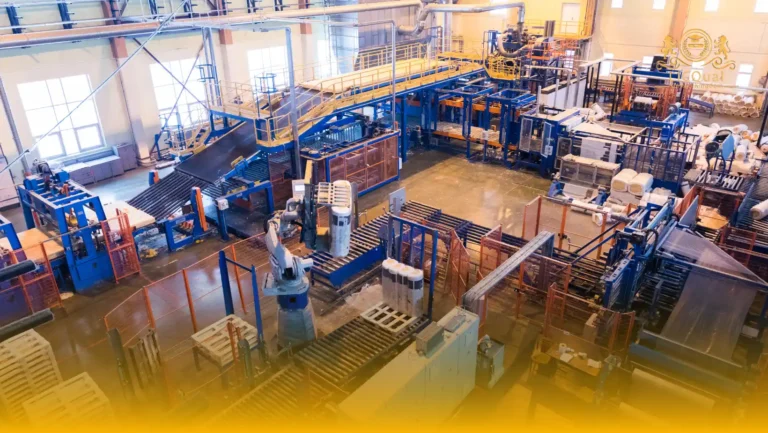The LICQual UK Level 6 Diploma in Technical Ship Management is an advanced, UK-accredited qualification designed for professionals who want to progress into senior roles within the global maritime and shipping industry. This internationally recognized program builds on technical expertise and develops the leadership, strategic, and research skills required to manage complex ship operations at an advanced level.
Unlike entry-level courses, the Level 6 Technical Ship Management Diploma UK focuses on advanced ship operations, safety leadership, engineering systems, and asset integrity. Learners gain in-depth knowledge of dry docking, maintenance planning, and fleet logistics, while also developing the ability to lead teams, manage projects, and ensure compliance with international maritime standards. This makes the qualification highly valuable for those aiming to move into supervisory, managerial, or specialist positions in ship management.
Employers across the shipping, logistics, and marine engineering sectors recognize the UK-accredited Technical Ship Management Diploma Level 6 as a mark of advanced competence. Graduates of this program are equipped to handle the challenges of modern ship management, from implementing safety systems and risk management frameworks to optimizing supply chains and driving innovation in maritime operations.
The course also emphasizes research and innovation, preparing learners to evaluate emerging technologies and contribute to the future of the shipping industry. By combining academic rigor with practical application, the Advanced Diploma in Technical Ship Management UK ensures graduates are ready to meet the evolving demands of international maritime operations.
If you are seeking a qualification that combines global recognition, advanced technical knowledge, and career-focused training, the LICQual UK Level 6 Diploma in Technical Ship Management is the ideal choice.
Course Overview
Qualification Title
LICQual UK Level 6 Diploma in Technical Ship Management
Total Units
6
Total Credits
120
GLH
480
Qualification #
LICQ2201300
Qualification Specification
To enroll in the LICQual UK Level 6 Diploma in Technical Ship Management, applicants must meet the following criteria:
|
Qualification# |
Unit Title |
Credits |
GLH |
|---|---|---|---|
|
LICQ2201300-1 |
Advanced Technical Ship Management |
20 |
80 |
|
LICQ2201300-2 |
Maritime Safety Leadership and Risk Management |
20 |
80 |
|
LICQ2201300-3 |
Marine Engineering and Asset Integrity |
20 |
80 |
|
LICQ2201300-4 |
Ship Operations, Maintenance and Dry Docking |
20 |
80 |
|
LICQ2201300-5 |
Maritime Project and Logistics Management |
20 |
80 |
|
LICQ2201300-6 |
Research and Innovation in Technical Ship Management |
20 |
80 |
By the end of this course, learners will be able to:
1. Advanced Technical Ship Management
By the end of this unit, learners will be able to:
- Evaluate advanced principles of technical ship management in global shipping operations.
- Apply strategic decision-making to complex ship management challenges.
- Integrate international maritime regulations into technical management practices.
- Demonstrate leadership in managing shipboard teams and technical operations.
- Analyze performance data to improve efficiency and reduce operational risks.
- Recommend innovative solutions for sustainable and cost-effective ship management.
2. Maritime Safety Leadership and Risk Management
By the end of this unit, learners will be able to:
- Lead safety initiatives in line with IMO, ISM Code, and SOLAS requirements.
- Conduct advanced risk assessments and implement mitigation strategies onboard.
- Manage emergency response systems and crisis communication effectively.
- Promote a proactive safety culture across shipboard and shore-based teams.
- Evaluate international safety leadership models in maritime operations.
- Recommend improvements to enhance compliance and reduce safety risks.
3. Marine Engineering and Asset Integrity
By the end of this unit, learners will be able to:
- Assess marine engineering systems for reliability, efficiency, and compliance.
- Apply asset integrity management principles to ship structures and machinery.
- Evaluate inspection, monitoring, and maintenance strategies for vessels.
- Integrate lifecycle management into marine engineering operations.
- Recommend engineering solutions to enhance ship safety and performance.
- Demonstrate knowledge of international standards for marine engineering systems.
4. Ship Operations, Maintenance and Dry Docking
By the end of this unit, learners will be able to:
- Plan and manage advanced ship operations, including navigation and machinery use.
- Apply preventive and corrective maintenance strategies to ensure vessel reliability.
- Evaluate dry docking processes, repair planning, and cost management.
- Demonstrate knowledge of international compliance in ship maintenance.
- Recommend operational improvements to optimize ship performance.
- Integrate safety and environmental standards into ship maintenance planning.
5. Maritime Project and Logistics Management
By the end of this unit, learners will be able to:
- Plan and manage large-scale maritime projects from initiation to completion.
- Apply logistics management principles to international shipping operations.
- Evaluate offshore and shipboard supply chain systems for efficiency.
- Demonstrate project risk management and resource allocation skills.
- Integrate international logistics regulations into maritime operations.
- Recommend strategies to improve efficiency in maritime project delivery.
6. Research and Innovation in Technical Ship Management
By the end of this unit, learners will be able to:
- Conduct independent research on advanced ship management and maritime trends.
- Apply research methodologies to technical ship management challenges.
- Evaluate innovative technologies shaping the future of ship operations.
- Demonstrate critical thinking and problem-solving in maritime research.
- Present research findings in line with international academic standards.
- Recommend innovative practices to improve global ship management operations.
The LICQual UK Level 6 Diploma in Technical Ship Management is designed for experienced maritime professionals who want to progress into senior leadership and technical management roles. This advanced UK-accredited diploma is ideal for those seeking to specialize in ship operations, marine engineering, safety leadership, and logistics management. Whether you are aiming for fleet management, project leadership, or research-driven innovation, this qualification equips you with the expertise to excel in the global shipping industry.
1. Senior Maritime Professionals
- Professionals aiming to move into advanced ship management and leadership roles.
- Individuals seeking a UK-accredited Level 6 qualification for career progression.
- Experienced staff looking to formalize their technical expertise with global recognition.
- Candidates preparing for senior responsibilities in ship operations and compliance.
- Professionals targeting higher-level positions in international shipping companies.
2. Marine Engineers and Technical Specialists
- Engineers responsible for ship machinery, propulsion, and asset integrity.
- Professionals aiming to master advanced marine engineering systems.
- Individuals preparing for senior roles in ship maintenance and lifecycle management.
- Candidates seeking expertise in dry docking, repair, and technical operations.
- Workers looking to align with international engineering and safety standards.
3. Maritime Safety and Risk Management Leaders
- Safety officers preparing for advanced leadership in maritime safety.
- Professionals aiming to manage risk assessment and compliance at fleet level.
- Individuals responsible for implementing IMO, ISM Code, and SOLAS standards.
- Candidates seeking to strengthen crisis management and emergency response skills.
- Workers committed to promoting a strong safety culture in global shipping.
4. Ship Operations and Fleet Managers
- Professionals managing large-scale ship operations and technical performance.
- Individuals aiming to specialize in maintenance planning and dry docking.
- Candidates preparing for senior roles in operational decision-making.
- Workers seeking advanced knowledge of ship performance optimization.
- Managers looking to integrate compliance and efficiency in fleet operations.
5. Maritime Project and Logistics Managers
- Professionals leading complex maritime projects and supply chain operations.
- Individuals aiming to improve efficiency in global shipping logistics.
- Candidates preparing for senior roles in fleet logistics and resource allocation.
- Workers seeking expertise in international maritime project management.
- Managers looking to optimize supply chain and transport systems.
6. Research and Innovation-Oriented Professionals
- Learners interested in driving innovation in ship management and operations.
- Professionals aiming to contribute to maritime research and development.
- Candidates preparing for roles in offshore and shipping technology innovation.
- Individuals seeking to apply research methodologies to maritime challenges.
- Workers looking to influence the future of global ship management.
7. International Maritime Workforce
- Professionals worldwide seeking a UK-accredited Level 6 ship management diploma.
- Learners aiming for global career opportunities in shipping and logistics.
- Candidates preparing for senior maritime roles in Europe, Asia, or the Middle East.
- Workers seeking qualifications aligned with international compliance standards.
- Individuals looking for a diploma recognized across global shipping markets.
Assessment and Verification
All units within this qualification are subject to internal assessment by the approved centre and external verification by LICQual. The qualification follows a criterion-referenced assessment approach, ensuring that learners meet all specified learning outcomes.
To achieve a ‘Pass’ in any unit, learners must provide valid, sufficient, and authentic evidence demonstrating their attainment of all learning outcomes and compliance with the prescribed assessment criteria. The Assessor is responsible for evaluating the evidence and determining whether the learner has successfully met the required standards.
Assessors must maintain a clear and comprehensive audit trail, documenting the basis for their assessment decisions to ensure transparency, consistency, and compliance with quality assurance requirements.







